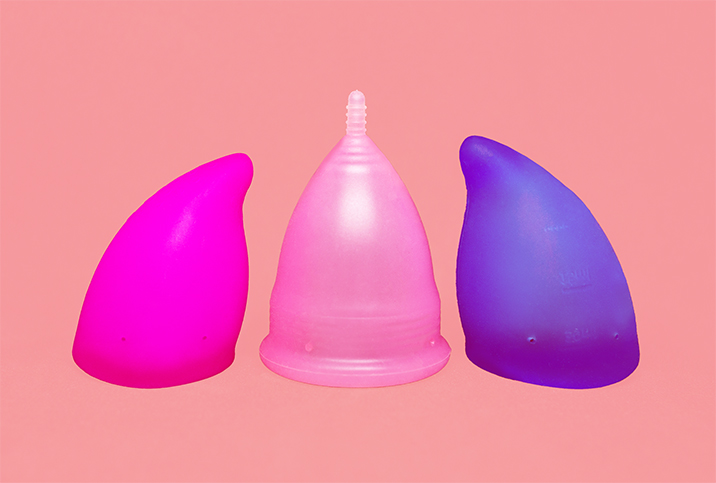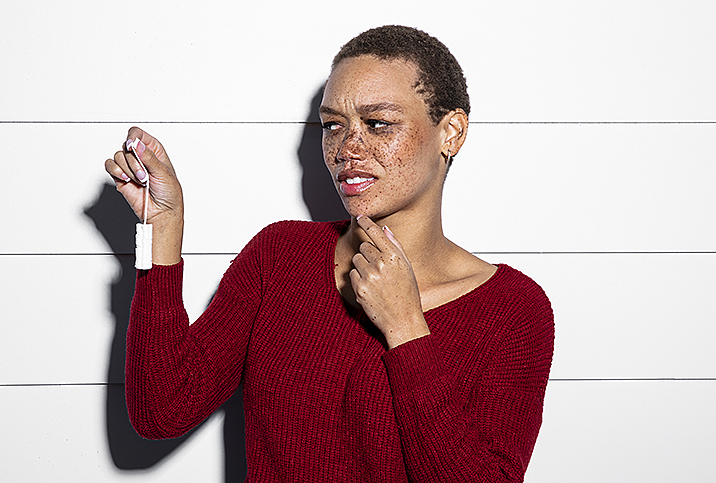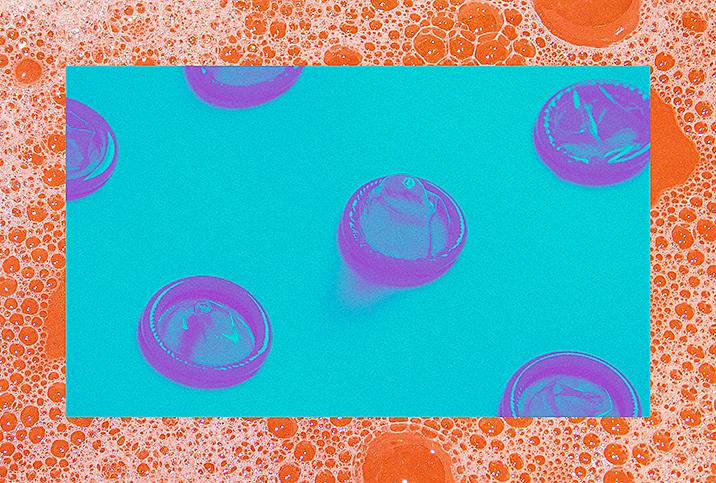Natural Menstrual Sponges Are Not Your Eco-Friendly Tampon Alternative

Natural sea sponges—they're simple animal beings that have been living in oceans and fresh water for millions of years. They're important to coral systems, filtering water and excreting "sponge poop" that other species promptly eat.
Somewhere along the way, it was decided they would also make great tampons.
Wait, what?
Are menstrual sea sponges a thing? Apparently.
"Some people promote them as 'natural' alternatives to menstrual tampons, except they're untested and potentially very unsafe," Jen Gunter, M.D., OB-GYN, wrote in a 2016 article. "Oh yeah, they are also filled with dirt."
Sponges have been marketed for decades as an eco-friendly reusable alternative to traditional period products. However, in the 1980s, the Food and Drug Administration (FDA) declared them unsafe to use.
We talked with experts on natural sea sponges to find out exactly why they aren't a great addition to your period care regimen. Luckily, there are plenty of other products healthcare professionals recommend instead.
Why you should rethink natural sea sponges for your period care
Sea sponges, in their natural habitat, are excellent filters. So inserting one into your vagina might introduce some of that filtered yuck into your body.
In her newsletter, the Vajenda, Gunter explained it's not clear if these sponges are prime breeding grounds for bacteria. This includes the bacterium that most commonly causes toxic shock syndrome (TSS), the condition your mom warned you about when you got your first period. Tampons currently on the market need to be tested to ensure they won't cause TSS, but sea sponges haven't had this same testing.
What's more, there is no known way to clean a natural sea sponge. Staphylococcus aureus is good at surviving both heat and bleach and can "be reactivated one year later after drying out," Gunter said in her blog.
'Some people promote them as 'natural' alternatives to menstrual tampons, except they're untested and potentially very unsafe.'
But what about manufactured menstrual sponges? These may be fine to use as long as they've been artificially made, explained Natasha Spencer, M.D., an OB-GYN at Orlando Health Physician Associates. However, she cautioned, if you reuse anything for more than six months, it increases your chances of vaginal infections, and yes, possibly TSS, unless you make sure the product is really clean.
Laura Purdy, M.D., a family medicine doctor in Georgia and medical director at Wisp, was franker. She's never heard of people using natural sea sponges for menstruation. "Are people putting these things into their vaginas? Why on earth would somebody want to do that?"
The thing is, Purdy explained, many people have vaginal flora that's sensitive to hormone fluctuations that occur throughout the menstrual cycle. “That alone is enough to trigger a bacterial vaginosis or yeast infection."
Products that are way better than a sea sponge (and still eco-friendly!)
When talking about a very sensitive part of the body (I'm looking at you, vagina) Jennifer Eden, co-founder and CEO of Tampon Tribe, fully believes anything you put in there needs to be FDA approved. Unless that happens, you probably shouldn't take the risk. Here are some good alternatives you can try.
Organic cotton tampons
According to Eden, organic cotton tampons should have both an organic cotton core and cover. Not all organic tampons on the market contain all cotton. If the packaging says organic, make sure everything in it is all cotton.
Menstrual cup
Eden sees the menstrual cup as the ideal alternative for a sea sponge. Silicone cups work fine, but they may be more rigid than a menstrual cup that contains a thermoplastic elastomer (TPE). Cups made with TPE are 100 percent recyclable and move better with your body.
Reusable cloth pads
Cloth pads can be cost-effective and very absorbent. However, if the pads are colorful, it means dyes have been added to the fabric. "If you're putting dyes on your body in a heated up area, you want to make sure they've been treated and the dyes aren't going to leach out onto your skin," Eden cautioned.
Period underwear
When it comes to period underwear, quality is key. "Period underwear lasts a long time," said Eden, "So you don't want to be buying something that's too cheap. You get what you pay for."
It's important when researching period underwear to find out what the company uses for its absorbency. Are they using natural cotton fibers, or are chemicals being added to create that absorbency? Organic cotton is great at absorbing liquids, no additional chemicals necessary, Eden said.
Bottom line: When it comes to period care, it should be FDA all the way, especially when it's a product you're putting inside your body.
“There are all kinds of brands of products that are made in a more sustainable fashion," Purdy said, “but I would recommend using tested and regulated products that are designed for vaginal wellness, which sea sponges are not. They are designed to live in the sea. Don't put them in your vagina."


















